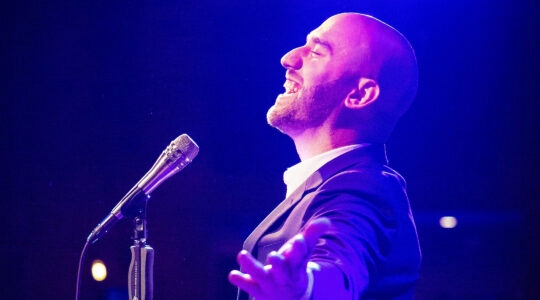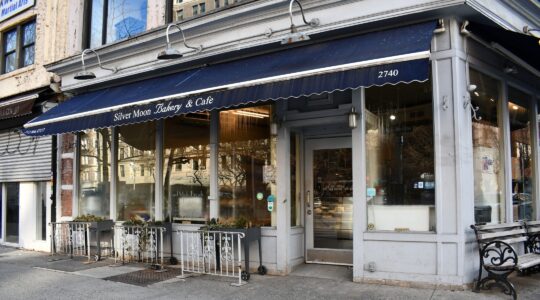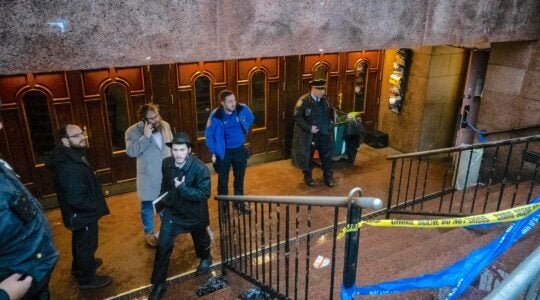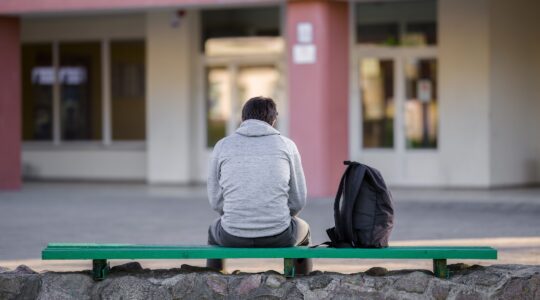One year after more than half of yeshiva fourth-graders failed to pass the state standardized English tests, Jewish day schools rebounded strongly in 2000.Though the official scores have not yet been released by the state Department of Education, 65 percent of students are reported to have passed, up from 48.6 percent in 1999, according to the Board of Jewish Education of Greater New York. That represents a nearly 25 percent jump in success rate.The English language arts exam, which tests reading comprehension and writing, also saw lesser but significant gains by public and Catholic schools. In the public schools, 59 percent of the students passed, up from 48 percent; 53 percent of the latterís students reached passing levels, up from 41.In the four-level scoring, the top two levels are considered to be passing; Level 1 indicates a mastery of English language arts beyond a basic passing grade.ìOverall there was tremendous improvement,î said Martin Schloss, director of school services at the BJE.But the improved performance evoked questions from day-school educators: Were fourth-graders really reading and writing so poorly last year and so much better this year, or does the test reflect nothing more than the dynamics of test taking ó coaching rather than teaching?Rabbi Haskel Lookstein, principal of Ramaz in Manhattan, said his school did two things differently after a lackluster showing in í99, according to its high standards. ìWe prepared the kids for the kinds of questions they would see, and we taught the kids how to answer those kinds of questions,î he said. ìWe didnít spend huge amounts of time on it, but students didnít go in cold, as they did last year.ìWe indicated to the students that this test was important. Last year we didnít. The adrenaline wasnít flowing last year; this year it was flowing. Everyone knows that if you take an exam where you donít think itís important, you wonít try as hard. We didnít set up any negative consequences for the children, but we made it clear it was a serious thing.îRabbi Lookstein said, too, that last yearís test was given in a room with distractions, but this year the students had ìappropriate conditionsî ó taking the test in their classrooms.Rabbi Aaron Fink at Ashar, the A.H. Schrieber Hebrew Academy in Rockland County, said his school ìlooked at the 1999 test, learned from it and adjusted our curriculum.îìThis is not only a hard test to take but also a hard test to grade; students had to analyze data and write opinions. Itís not a test that can be scored by machine. Each childís essays have to be individually read and scored.ìEvery school knows that there are certain groups of kids that are more difficult or have more problems than other years. There are too many variables that go into judging one yearís performance.î
The inaugural exam sparked considerable debate among Jewish educators, and according to the BJE, at least 15 fewer day schools issued the test in February compared to the 104 schools in 1999. The New York State Association of Independent Schools, which includes some Jewish schools, advised members that the tests could be skipped.As a result, said Schloss, ìSome of the Phi Beta Kappa [Jewish] schools have not bought into these tests.îAmong those that opted out this year were Riverdaleís SAR Academy, last yearís top-scoring school, and other flagship institutions such as the Heschel School in Manhattan.However, the many day schools that fared poorly in the first test were eager to test again, in no small measure to dispel the negative images left by the highly publicized 1999 test whose scores were posted on the Internet by the state Department of Education, prompting comparisons with rival schools and neighborhoods.Ramaz and Ashar, two schools that did relatively poorly by their standards last year, proved to be two of this yearís highest achievers. Administrators from both admitted they tested again in no small measure to avenge last yearís disappointment.ìWe had to take it this year to confirm for ourselves that we were doing OK, and that we could come out very well,î said Rabbi Lookstein, adding that Ramaz has not decided on whether it will issue the test in 2001.Ramaz, openly stung by last yearís rate of 69 percent passing and 31 percent failing, said its 2000 passing rate jumped to 90 percent, with 44 percent of the students reaching the highest mastery level, a level only 9 percent reached in 1999.
At Ashar, the school said its passing rate rose to 98 percent, up from 66 percent, with a mastery percentage of 49 percent ó a dramatic rise from 4 percent last year.Schloss expressed concern at the pressure the new emphasis on standards and testing is having on the schools.
ìI tell you, itís going to be a real challenge being a fourth- or eighth-grade teacher,î he said, referring to the other grade being targeted by statewide tests.The onus is on principals to deliver high scores. One Jewish day school leader, who requested anonymity, said: ìParents saw how well certain schools did last year, and parents are competitive. Itís like the stock market; people want it to only go up.îA Jewish principal told The Jewish Week that because of the 1999 scores, ìI suffered personally and professionally.îAnother admitted to coming under greater stress.ìA schoolís board of education may understand the variables of these tests but the general community may not understand and judges the school harshly,î this principal said. ìPeople live and die by numbers.î
The New York Jewish Week brings you the stories behind the headlines, keeping you connected to Jewish life in New York. Help sustain the reporting you trust by donating today.




